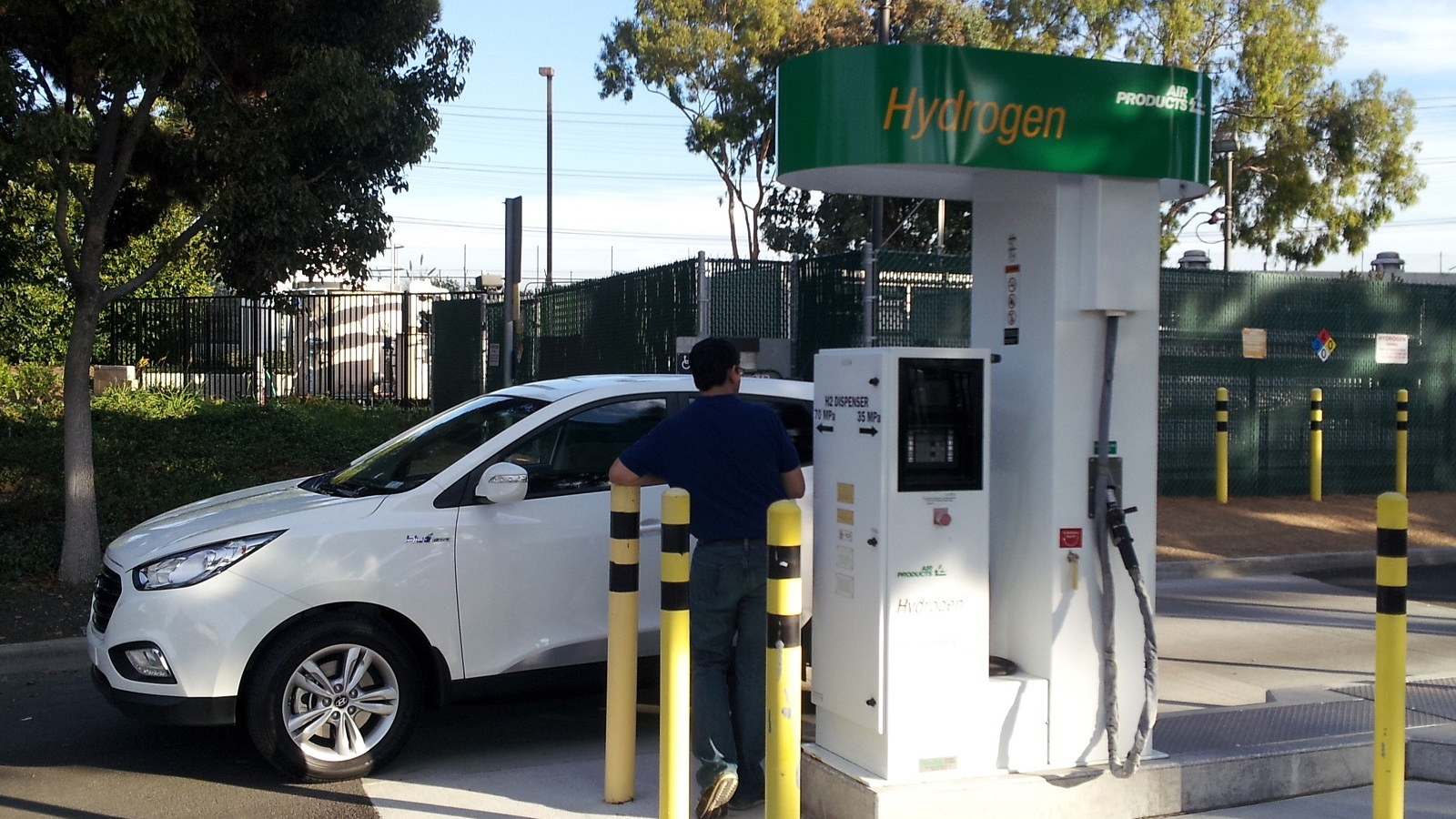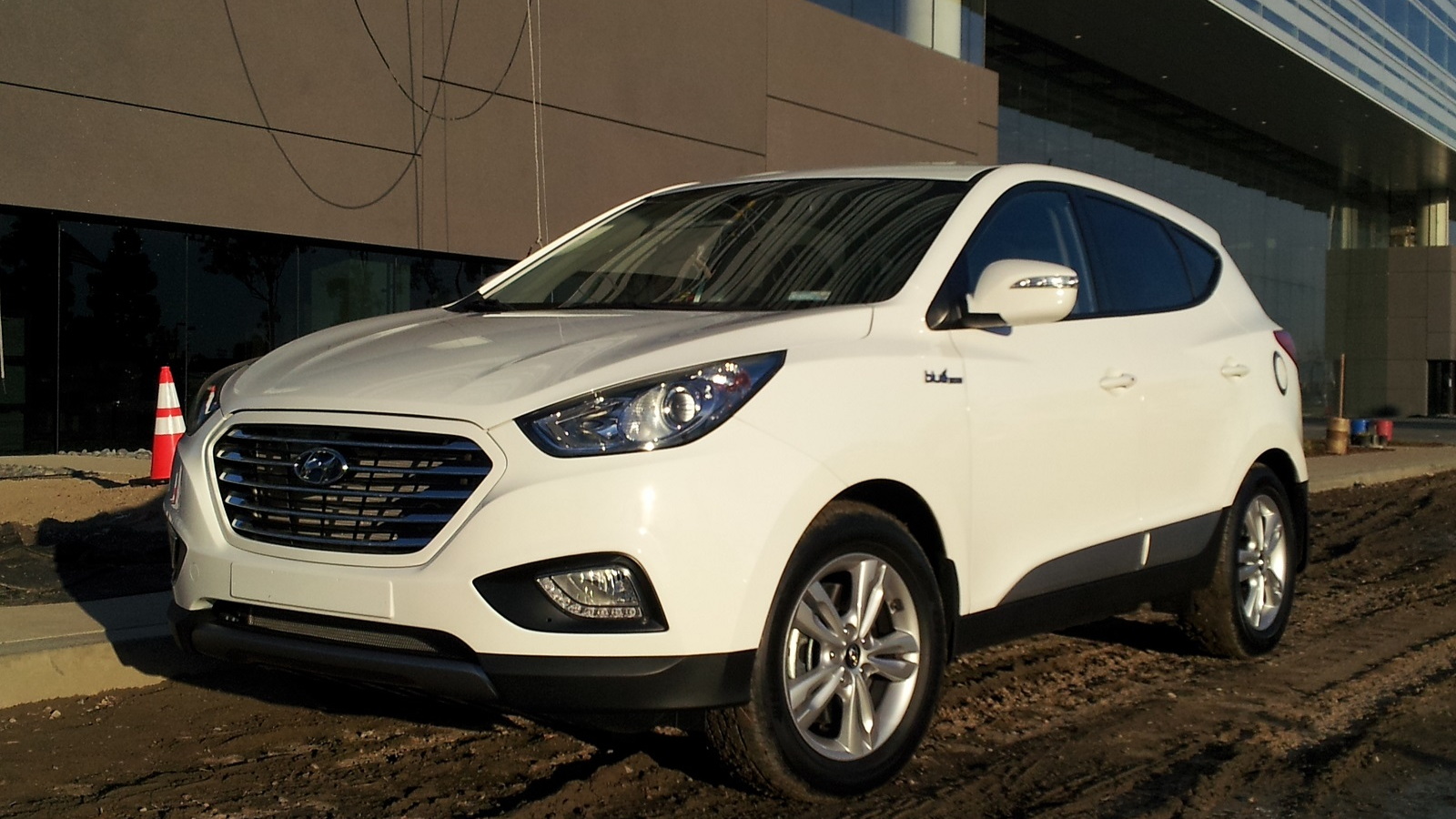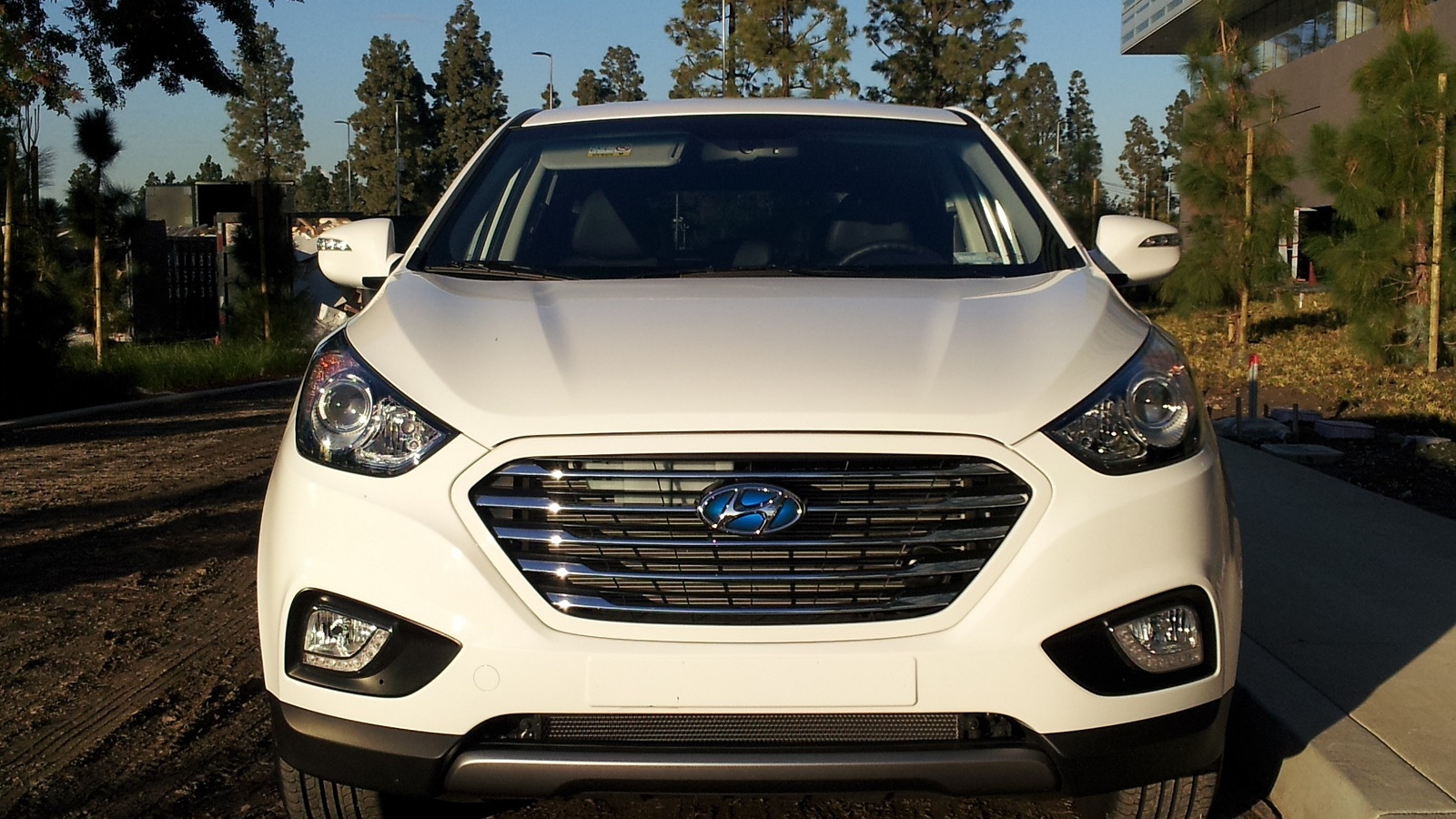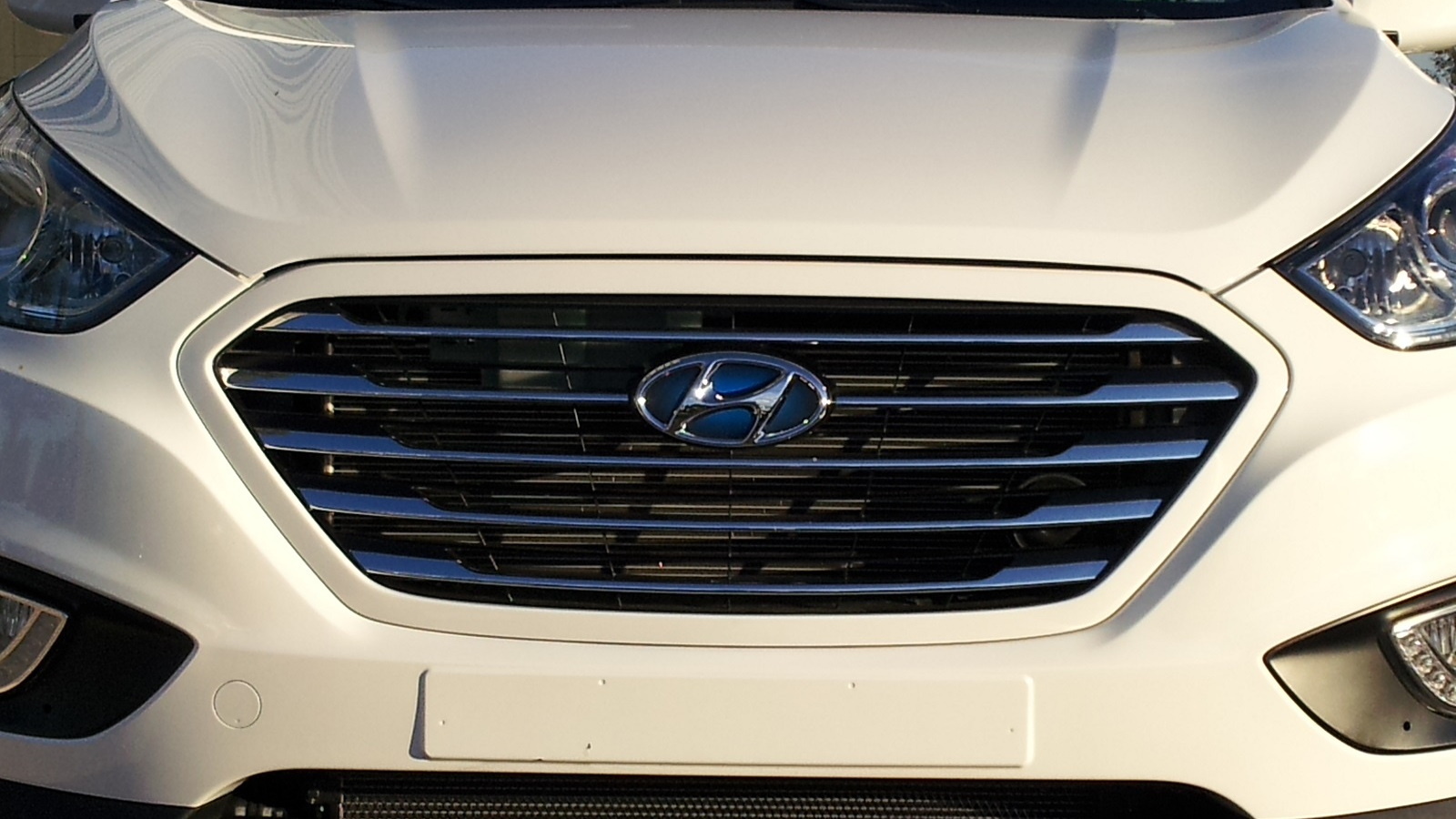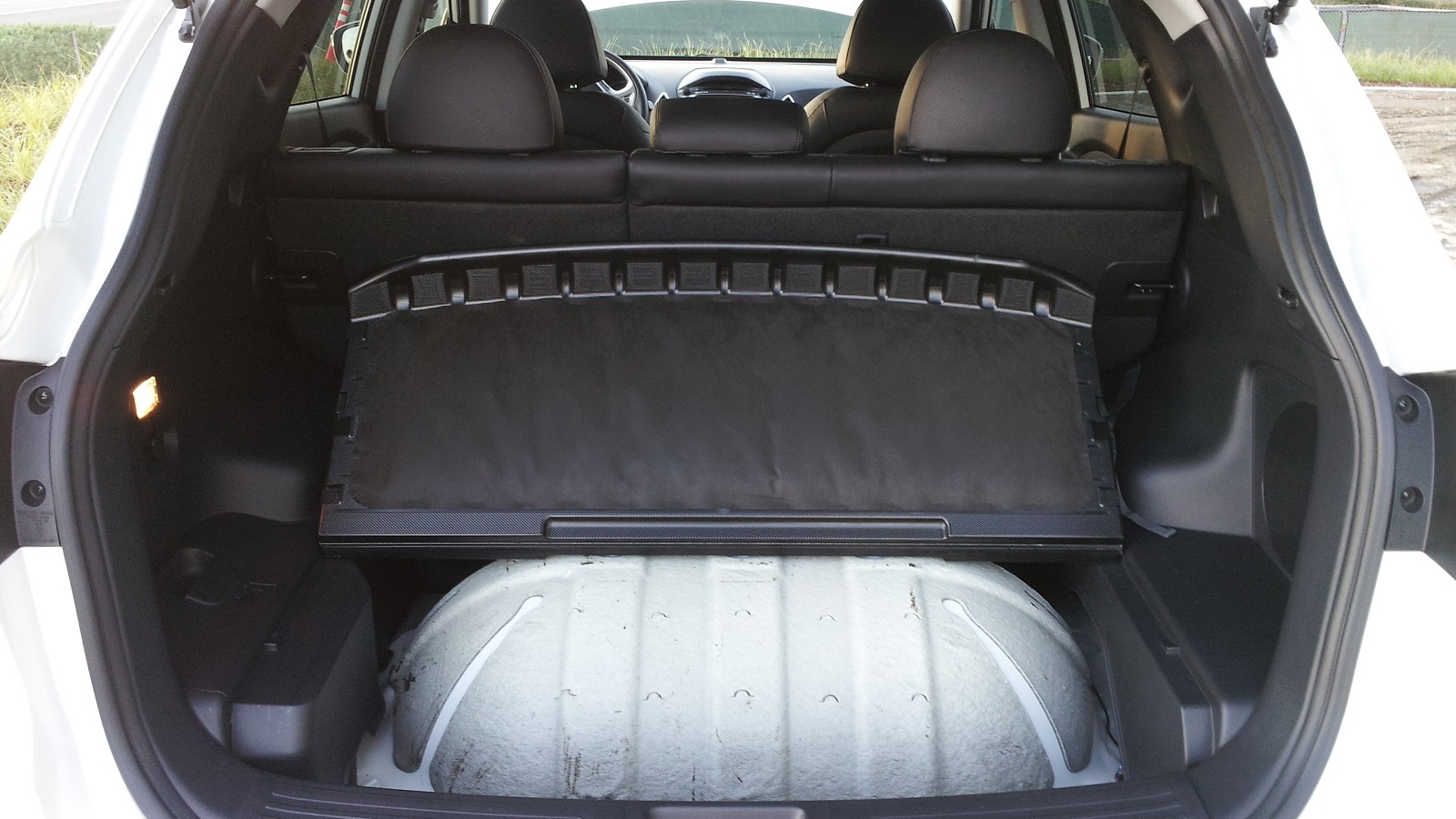Hyundai recently handed off the keys to its first Hyundai Tucson Fuel Cell customer, and the Korean carmaker has consistently said it believes hydrogen vehicles--and fuel-cell technology--will be the equivalent of "the next electric car."
Plug-in electric vehicles are steadily gaining a foothold, thanks to models like the Nissan Leaf and Tesla Model S.
DON'T MISS: 2015 Hyundai Tucson Fuel Cell: Hydrogen Crossover First Drive
And American drivers have also become more comfortable buying them as public charging stations become more prevalent.

2015 Hyundai Tucson Fuel Cell at hydrogen fueling station, Fountain Valley, CA
Tesla is aggressively expanding its network of Supercharging stations, which can give Model S drivers an 80-percent recharge in about 20 minutes, according to the company
But for fuel-cell cars to catch on in a similar way, customers would need convenient access to hydrogen fueling stations--of which there are only six today in the Southern California region.

2015 Hyundai Tucson Fuel Cell at hydrogen fueling station, Fountain Valley, CA
We recently spoke with Hyundai's U.S. chief, Dave Zuchowski, and its head U.S. product planner Michael O'Brien, to learn more about the automaker's plans for the hydrogen-powered Tucson and future fuel-cell vehicles.
Hyundai surprised many at last November's L.A. Auto Show when it announced plans to offer a production version of the Tucson Fuel Cell compact crossover to carefully-chosen Southern California residents for a lease price of $499 a month.
ALSO SEE: Hyundai On Hydrogen Fuel-Cell Vehicles: Critiquing Its Claims
Significantly, the lease included unlimited hydrogen refueling along with free maintenance.
But has Hyundai considered investing in infrastructure and hydrogen fueling stations, to help the expansion and prevalence of fuel cell technology?
"We believe the fuel companies that have been doing this for 100 years should invest in infrastructure," Zuchowski said, "and we'll do what we do best, which is build cars."
But, Hyundai's U.S. CEO also added, "That being said, we believe everyone needs to roll the dice on new technologies, and emerging technologies, and we're in open and active conversation with some of the developers to see if there's a role for us in that area."
"A lot of the money you've seen invested in supercharging stations from Tesla," Hyundai product-planning head Michael O'Brien was quick to say, "is money that has come from grants and loans from the government."
"We have received no such money," O'Brien added.
COUNTERPOINT:
Hyundai Exec Claims U.S. Funds Superchargers, Electric-Car Maker Tesla Angrily Rebuts
He said that while California is expected to have up to 30 fueling stations by the end of 2016, it's what happens in other parts of the country that will be especially significant.
"For us, the big breakthrough will come when other states start investing in infrastructure," O'Brien concluded, "and we see other stations popping up outside of California."
_______________________________________________
